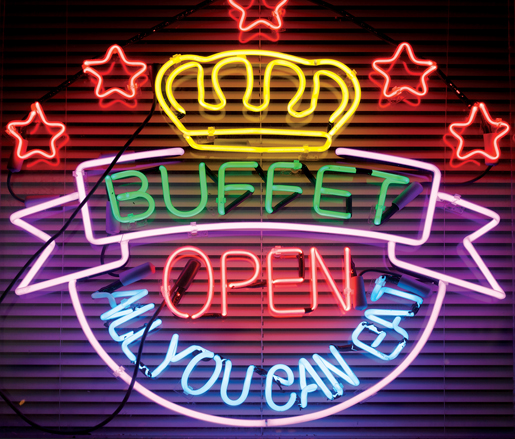
Hunger is not a feeling I know. But appetite consumes me.
Despite an occasional pang here and there, I have never been hungry, because I have access to more than enough food to sustain me. For the most part that food is of the highest quality, grown in accordance with the most sustainable practices, and prepared to exacting standards.
I am not hungry, but I have a near insatiable appetite. I want to try this new restaurant. I want to taste that heirloom tomato. I want to finish the entire pot. Far from needing to find what to eat, my personal struggle is to find how to stop. This is a battle I often lose. Still, I am lucky.
Appetite is desire.
We eat and shop and strive to attain the things we want for reasons beyond need. Sociologists, psychologists, philosophers, even neuroscientists have examined the nature of appetite to better understand what drives us. In a consumer society that privileges individuality, what we want is as important as what we need, maybe more so, especially when you factor in the class, status, gender, race, and agency of whoever is doing the wanting. Many of us live high on Maslow’s hierarchy of needs. What we want, perhaps even more than what we have, defines us.
Appetite is morality.
As with any desire, our appetite for food is seasoned with a complex morality. Eat your hamburger, people are starving in India. Some moral order presupposes that people who are hungry are victims and people who have big appetites are greedy. As always, the reality is more complicated. A person who experiences real hunger has real appetites, too. They are not mutually exclusive. No one appetite is more valid than any other. But some are more palatable.
When our appetites get out of hand we try to contain them by applying limits. Sometimes morality works. Drinking, shopping, and sex are appetites whose excesses beget moral limitation. Gluttony used to be right up there, too, but now it’s the focus of just about every popular TV food show, every restaurant commercial. If morality doesn’t effectively set limits, laws are often enacted to do so. When it comes to food, such laws prove problematic to defend because we need to eat to live. Where do we draw the line? How big should our sodas be?
Appetite is life.
Our desire for more is a strong motivating force, whether it’s for approval, money, or food. Appetite is a spark. In the medical world, appetite is also considered a key indicator of the potential for positive outcomes. If a patient can’t muster the appetite to eat, strong measures must be taken to intervene.
Underlying the success of a consumer society built on capitalism is an endless and ever-growing appetite. Enter the marketplace, where our appetites feed an economy geared to catering to and ever increasing them. The economics of appetite feed such an important cycle that if it stops, like the patient who won’t eat, we almost immediately enter an economic crisis. Can we nurture our appetites and still find a sustainable balance?
Appetite is American.
If ever there were a person who embodied American appetites, especially for food, it was James Beard. Larger than life and always hungry, Beard was poised, you could almost say, to become the father of American cuisine because of his outsized appetites. While the delicacies of French food resonated with Craig Claiborne and Julia Child, Beard needed more. Most remarkable to me in his collection of letters to his California colleague Helen Evans Brown are his obvious yearnings for more: more food, of course, but also more knowledge, more travel, more friendship, and more approval.
The importance we place on wanting, our sense of entitlement to consume, is a feature of American culture and identity that we often take for granted. We think of it as natural, that we have a right to want what we want and to achieve it, that what we want is who we are.
If to be American is to want, or more precisely, to want more, this poses a challenge to the concept of sustainability and provides an obstacle to any attempt to change behaviors associated with over consumption. Obesity is a growing problem in much of the developing world, but the unique challenge in America is how to tell people they can’t have everything they want when what you are really saying is they can’t be who they are. America is abundance. Austerity, restraint, small portions, that’s so much more…um… Japanese, Italian, other. Obesity is just one obvious consequence of our sense of entitlement to have and to satiate our desires. There are many others.
Of course there are many ways to frame these questions and many more ways to approach the answers. At the annual James Beard Foundation’s Food Conference on October 21 and 22, we’ll spend two days with a roomful of experts exploring the role appetite plays in sustainability and public health. You’re yearning to be there, aren’t you? We know you’ll leave satisfied.
The 2013 JBF Food Conference will be streamed live at jamesbeard.org/education/conference/live.



-57 web.jpg)


